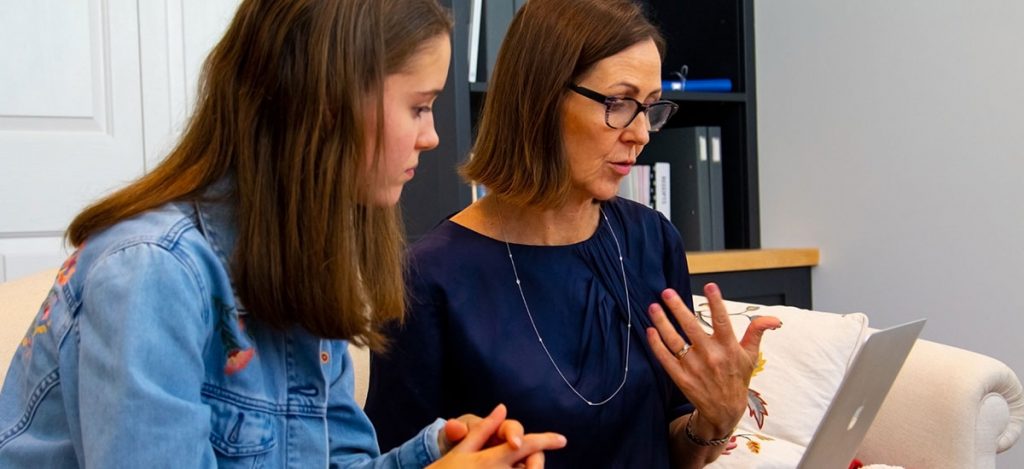Courses and Careers. Tertiary Study in 2022.
 I’m having a lot of discussions about courses and careers, with parents and students, particularly since the arrival of the global covid-19 pandemic. The question being, is tertiary study a wise choice, for 2022?
I’m having a lot of discussions about courses and careers, with parents and students, particularly since the arrival of the global covid-19 pandemic. The question being, is tertiary study a wise choice, for 2022?
It is at this time in the academic year that many parents are trying to help their school-age children decide upon courses and careers. Indeed, I am already fully booked with appointments with year 12s, until late July. The mid-year school holiday period is when a lot of parents and students decide to seek professional career coaching support, if they have not already done so. In term 3 years 12’s heads are down, deep into unit 3 study, so clarifying their study options needs to be done by then.
This is because the tertiary admissions centres will soon be allowing students to sign up to create their accounts. By September, the tertiary institutions will have notified the admissions centres of the course titles, and codes, for courses that they will be delivering (hope to deliver) in the following academic year, 2022.
But your child may feel that they do not want to apply for courses, when the chances are that they might be partly, if not completely, delivered by Online Learning Mode. By the way, this is often termed as Distance Learning Mode. Meanwhile, when the courses are referred to as by Flexible Delivery Mode, that means there’s some online content as well as some face-to-face learning (on-campus). There is a whole new language of courses!
The impact of Covid-19
In 2021 it feels as though parents are finding the parental support role, in terms of advising their children about careers and courses, harder than in previous years. I think many, especially those in Victoria, had a tough 2020. For parents and students there was quite a few weeks and months of home-schooling. Home-schooling for many students interrupted study momentum and motivation. See my earlier blog on student motivation.
Now, I am hearing many of my student clients are feeling high levels of stress and exhaustion, especially those in Victoria. Many are using words such as Worried, Tired, Lost, Confused. I have spoken to several parents this year whose school-age child wants to ‘drop out‘ of the school year and are feeling doubtful about re-engaging in formal education or training.
Zoom-ing in 2021
Both parents and students are experiencing Zoom fatigue. I feel that this is a contributing factor. Click on the link here to read what Stanford University, in the USA, is saying about Zoom Fatigue. This article helps to explain why we feel tired having been at a screen all day for meetings. Your child may seem unusually tired.
I have also heard of the term, “covid-hangover”, which refers to the negative impacts upon not only parents and students, but upon teachers too. I have had students and parents talk about a lot of teachers being unwell for extended periods and the concerns about the frequent use, in schools, of substitute teachers. This can result in some students feeling unsupported, as they may not have the confidence to keep repeating their questions to a teacher who does not know them. Here is a link to one La Trobe University student’s perspective on the Covid-Hangover.
In addition, there are those for whom online schooling has been a nightmare due to poor access to the internet, or to a device in their home. A year 12 student client living in regional Victoria, has reported to me that she frequently cannot get a connection to her school’s learning portal.
So you may be asking yourself whether your child should complete more educational courses after year 12, in 2022. Is further study next year going to mean more online study?
Honestly, it is still quite possible that there will be periods of online learning in 2022. Only a small proportion of the Australian population has been vaccinated against Covid-19 and there is even some reluctance in the community to be vaccinated. It is widely argued that the vaccine roll-out must be accelerated. Maybe this will happen. Watch this space.
But, if the states wish to stick to a policy of Covid-19 elimination, tertiary institutions cannot possibly promise that they will not close campuses in the forseeable future. This recent ABC analysis covers the issue well and details that Acting Premier of Victoria, James Merlino:
“wasn’t prepared to put a number on what percentage of the population should be vaccinated before he’d take lockdowns off the table in future outbreaks.”
Further or higher education courses in 2022
Therefore, it is fair to say that further education institutions in Victoria cannot make any guarantees about how much of their courses will be delivered on-campus in 2022. Equally, in states and territories across Australia, the same applies. An outbreak of a new variant of covid-19 in Australia could easily result in the closure of campuses, even if only for a snap, short lockdown. Certainly for now, there is a sense that the universities as wary of making promises they cannot keep.
On that point, I have just received a briefing from a number of higher education representatives, most of whom have stated that their Open Day events, all taking place in August onwards, will not be conducted in the normal fashion. To translate, most open days are being delivered online. If, IF an open day is on-campus, you will most likely need to register. So do that as soon as possible! Here’s the published latest.
But this doesn’t tell us anything about courses in 2022 and HOW they will be delivered.
What is clear is that if your child is interested in a hands-on skills training course, also called ‘applied learning’, these are the ones which are most negatively impacted by enforced lockdowns caused by covid-19 outbreaks. This is because of the potentially large number of units of study that rely on a practical assessment, rather than a written assessment, will have to be delayed.
Vet Nursing – a student’s experience in 2020
An example I can provide is from a Bachelor of Vet Nursing student’s experience in 2020. Notice that this is a degree course. My client was only able to study part of the normal study load (usually 4 units each semester) last year. This essentially slows down the student’s progress through the course. It can also have a negative impact on the student’s enjoyment of the course, as they are often hands-on, visual learners, who learn best by observing and then copying what has been demonstrated.
On the other hand, academic study, or conceptual learning, where laboratory, or hands-on practical learning tasks, are few, is easier to deliver in live, or recorded, lecture form. Indeed, many tertiary institutions started offering online learning, in courses such as business and arts, well before covid-19 reared its ugly head.
Online Learning – a personal perspective
Indeed, I have personal experience of online learning. I used to watch/listen to some of my Monash University Arts lectures online, especially if they were delivered at the campus furthest from my home. I had two school-age children of my own at the time of my second undergraduate degree. I had to juggle a lot of commitments and so driving a long distance for one lecture was sometimes difficult.
If the time of the lecture overlapped with school pick-up time, I simply couldn’t attend. Being able to log in and sit at home on my own device to watch a recording, or to even watch the lecture in real time, was great. That said, I was already well connected with other students and part way into the degree already. I think for 2020 first year students, not setting foot on campus and not meeting fellow students was problematic for their feeling of connection to the course. I have spoken to several students in the past 12 months who either did not even commence their first year, or deferred.
NB – To defer means to delay commencing study once you have enrolled in the course.
Moving on, my Career Development course, at Swinburne University, was an online course. That said, there was also a face-to-face component – we had to meet up with a fellow student once per month, to practice our coaching skills and there was a weekend intensive course too.
So I do know what remote learning is like. It doesn’t suit every personality. Extraverts, who love to connect and be amongst others, are not so keen on being by themselves. On the other hand, I have spoken to many students, ranging from year 9s upwards, who have said they are less distracted and happier working from home. It’s “horses for courses”, as the old saying goes. Literally, for some, being at home is wonderful. For others, it’s a curse.
To clarify what I mean by “further educational courses”, your child may advance beyond compulsory education, in a secondary school, in courses at the following levels:
- Certificate level (Certificates I through to IV)
- Diploma and Advanced Diploma
- Associate Degrees, Bachelor Degrees, including Honours and Double Degree
These course titles are typical for Australian courses, regardless of which state or territory your child has studied.
All of the above named course types can include some hands-on, lab-style learning. Certificate level courses tend to have the highest number of technical skills-based learning components. Diplomas and what are referred to as “Applied” degree courses, will have a training, or internship element. Specialist degrees, such as Medicine, Nursing, Psychology, Physiotherapy, Engineering, Graphic Design, Performance, also have a significant amount of ‘applied’ content.
Therefore, it is fair to say that there are a large number of courses across all further education categories that are negatively impacted by campus closures. We have to be realistic and flexible, more flexible than ever before. We need to stay well informed – read the papers; encourage your child to do the same, and be clear about your child’s preferred learning style, when deciding upon courses and careers for 2022, and beyond.
A well thought-out plan for further education courses and careers has never been more important than now. For your child’s career success it is best to seek the advice of a highly experienced and completely impartial professional career coach. My career counselling support is unique. I care and I dedicate the time and the commitment to each of my clients. I make no assumptions based on their academic performance. Trust in best practice and gain the most comprehensive and appropriately progressive student career counselling support for your child. Their future matters!
Please use the Contact box to send your detailed request for support.
Similar articles

“There is nothing Clever about not being Happy” Arnaud Desjardins
That’s a pretty bold statement, Monsieur Some Gardens! I found the quote in a gorgeous book, Buddhist Offerings 365 Days, Edited by Danielle and Olivier Follmi, and published by Thames and Hudson. Alongside of each days’ quote is a stunning photograph, and against this particular quote is a photo of a horse lying on its […]

“Where there’s a Will, there’s a Way”
I heard myself saying this to a despondent young man the other day, and wondered how helpful I was being. Oh dear, questioning my own tips might be a troublesome habit, however it does serve to galvanise me into action to check on my sources and ponder the idiom.

20th March is International Day of Happiness
“Each individual is master of his or her destiny: it is up to each person to create the causes of happiness” The 14th Dalai Lama 20th March is International Day of Happiness What a pity we need special days and coffee table books with images of smiling faces to nudge us into a happiness […]
